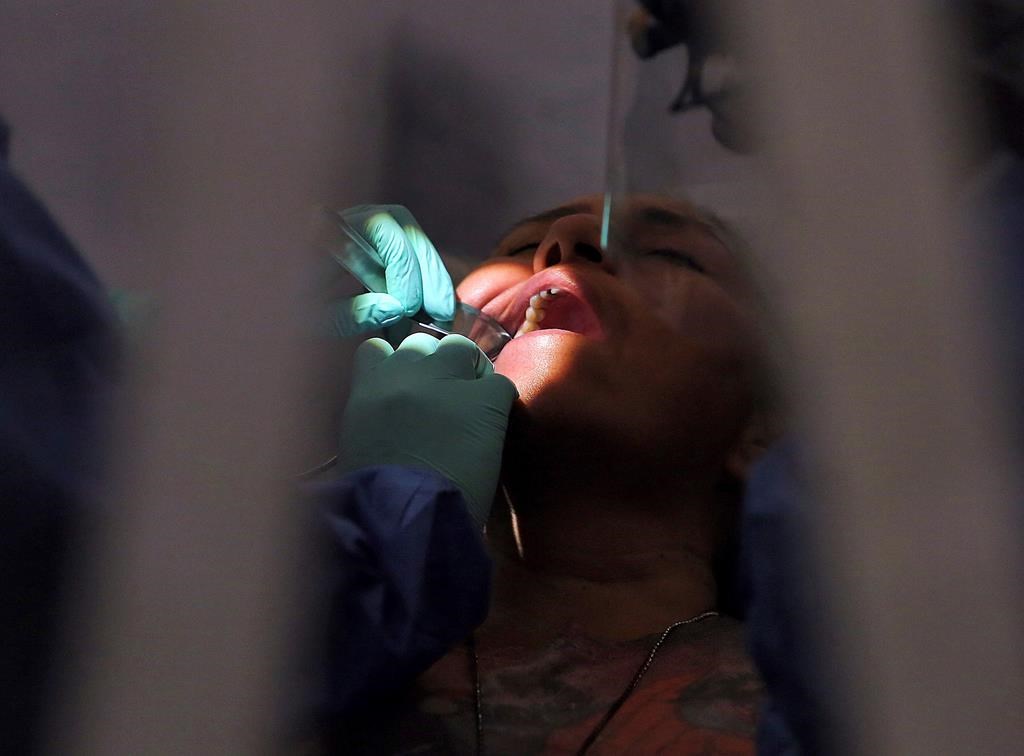Canadian dentists are demanding details on Ottawa’s soon-to-be announced federal dental insurance plan and how the federal government plans to preserve existing provincial and private coverage.

Eleven provincial and territorial dental associations have written a joint letter to the federal health minister to express serious concerns about a lack of information when it comes to critical aspects of the new plan.
“We have no indication that we are being heard,” the dental associations said in their letter, which was also sent to all members of Parliament this week.
They wrote that they worry the success of the new plan is being compromised “by a lack of meaningful consultation with the dentists we represent — those who will be expected to deliver on the government’s promises.”
The plan was born out of the Liberals’ supply-and-confidence deal with the NDP last year, which calls for federal dental care coverage for middle- and low-income families.
The new insurance program is expected to be announced before the end of the year, though claims may not be accepted until 2024.
The spring budget promised $13 billion over the next five years to implement the national dental-care plan, which the federal government says will insure up to nine million people.
The government plans to begin with coverage for uninsured people under the age of 18, seniors, and people with disabilities under a $90,000 annual family income threshold.
More specific details about the new plan have yet to be released, and those details are important, the dental associations said.
“If we get the details wrong, there will be serious unintended consequences and access to oral health care in Canada will be undermined for generations,” the letter stated.
Health Minister Mark Holland has said in recent weeks that he does not want to pre-empt an official announcement by revealing those details publicly.
The minister’s spokesperson said Thursday that there have been “extensive consultations with a broad range of stakeholders, including the dental associations.”
“We have expressed our openness to continue to meet as we move forward on the Canadian dental-care plan, and we look forward to having more productive conversations,” Chris Aoun said in a statement Thursday.
Dr. Brock Nicolucci, a practising dentist and chair of the board for the Ontario Dental Association, said the government did consult with dentists early on in the development of the program.
“But unfortunately, the past year and a bit, there’s been crickets,” he said.
“We’ve been kept in the dark.”
The Canadian Dental Association has advocated for its recommendations related to the dental plan throughout the process, the national association said in a statement.
But given there are regional challenges across the country, the association has encouraged Health Canada “to meaningfully consult with the provincial and territorial dental associations,” it said.
The dentists with provincial associations want to understand, in particular, how the government plans to prevent employers and private insurers from scaling back their coverage for low- and middle-income families and refer patients to the federal program instead.
They also want to know how the new program will coordinate with existing public coverage provided by the federal, provincial and municipal governments.
If people lose existing coverage it would seriously drive up the cost of the program, Nicolucci said.
Dentists also worry about a lack of available dental hygienists and assistants to meet the increased demand.
In Ontario, the dental association says there is already a shortage of 5,500 hygienists and 3,400 dental assistants.
In their last federal budget, the Liberals set aside $250 million over three years to improve access to dental care, but the funding doesn’t kick in until 2025.
“We have this problem right now. It’s current,” Nicolucci said.
“Dealing with it after the program is going to be released — that isn’t sufficient.”
The Canadian Dental Association has also advised the government to devise a strategy to address workforce challenges “and for it to be designed in a way that does not impact or (delay) the provision of care to patients.”



Comments